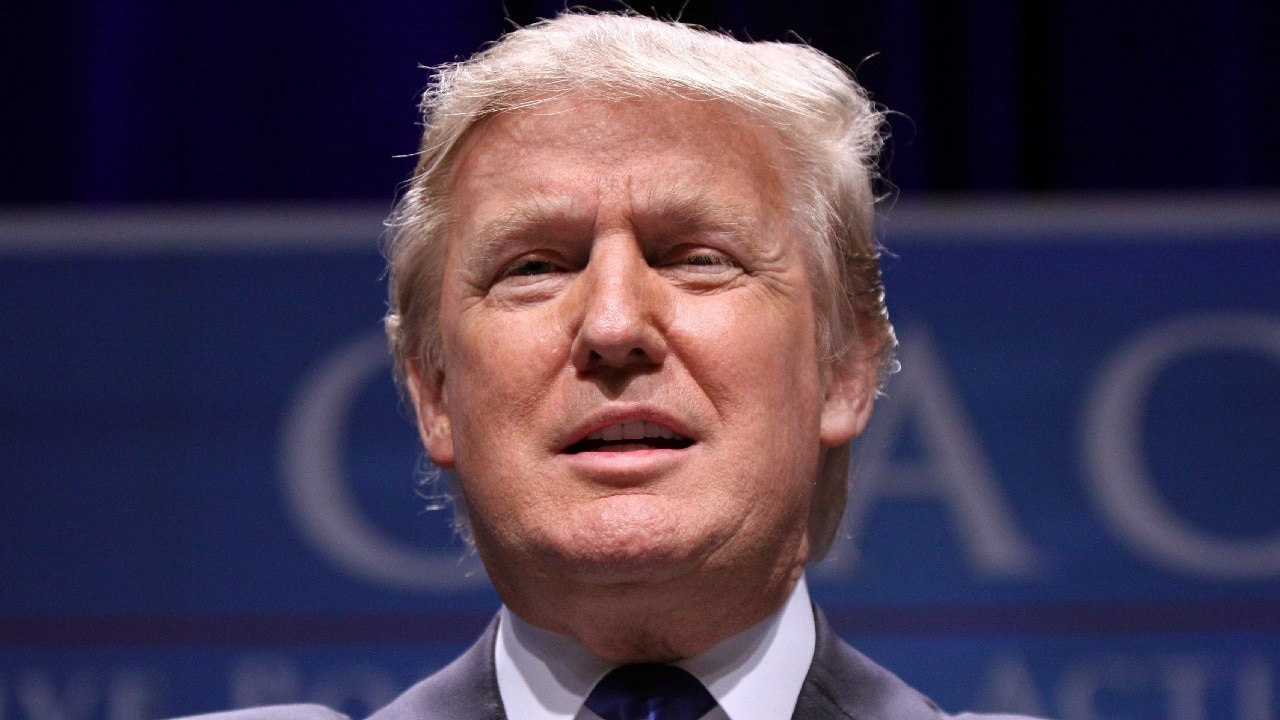This week, Donald Trump described the government funding fight as “the last chance to defund these political prosecutions against me”: In budget negotiations this year, Democrats have frequently accused their Republican counterparts of doing the bidding of former President Donald Trump. The Biden re-election campaign said the same when House Speaker Kevin McCarthy announced he was moving forward with an impeachment inquiry.
This week, Trump took an action that didn’t exactly put that interpretation into much dispute.
“Republicans in Congress can and must defund all aspects of Crooked Joe Biden’s weaponized Government that refuses to close the Border, and treats half the Country as Enemies of the State,” Trump said on Truth Social Wednesday. “This is also the last chance to defund these political prosecutions against me and other Patriots. They failed on the debt limit, but they must not fail now. Use the power of the purse and defend the Country!”
Congress has until the end of the month to reach a deal on funding the government or risk a government shutdown. That deadline is applying pressure, while Speaker McCarthy is under pressure from his right flank, who are threatening to depose him as speaker if he doesn’t accede to their demands. In the meantime, the GOP holds a small majority in the House and does not control the Senate or White House, leaving them limited power to get everything they want in the process.
Therefore, the speaker will likely face a choice between passing a continuing resolution with Democratic votes, which would put his speakership at risk or refusing to do so, and virtually guaranteeing a government shutdown.
It’s been noted that Republicans rarely “win” government shutdowns, which have frequently taken place during Democratic presidencies when the GOP controls at least one House of Congress. There were also two government shutdowns during the Trump presidency, including one that lasted 35 days, which entailed the president fighting with Republican leaders in Congress.
Trump, in the meantime, has applied an additional point of pressure, especially on his most die-hard loyalists in Congress, who are mostly the same people directly pressuring McCarthy.
The former president, however, is unlikely to get what he wants. Federal budgets tend not to include specific funding for the offices of specific prosecutors or prosecutions, and there is no way there will be enough votes in Congress to defund the entire Justice Department.
Reuters described Trump’s quest as “unlikely,” and added that the Justice Department has said that even in a government shutdown, “permanent indefinite appropriations” would continue to fund ongoing operations, prosecutions included.
And of course, two of the four pending criminal cases against the former president are at the state level and have nothing to do with the federal government.
“Trump ordered House Republicans to shut down the government,” Rep. Hakeem Jeffries (D-NY), the House Minority Leader, said on X, the former Twitter. “These people are too extreme to ever be trusted.”
Meanwhile, one lawmaker, Sen. Ron Johnson (R-WI) is pushing a bipartisan proposal that would eliminate the possibility of government shutdowns by, in the event of a lack of agreement, would keep the government funded at the previous year’s spending levels.
“This is what we do in Wisconsin. If you have dysfunction, and you don’t fund the whole government, or any agency, you don’t shut it down. You just spend at last year’s levels,” Johnson told Semafor this week. “What could be more common sense, what could be more reasonable?”
It’s part of a bipartisan piece of legislation called the Prevent Government Shutdowns Act, whose sponsors also include Rep. Maggie Hassan (D-NH).
“Government shutdowns waste taxpayer dollars and put our nation at risk, and we need to avoid them whenever possible,” Hassan said when the bill was announced. “This commonsense bill incentivizes Congress to fund the government on time and ensures that there is a plan in place to protect families and our economy if Congress cannot come to agreement.”
Whether the bill could pass in the current environment, especially with a Republican Congress in which some members want the leverage of a possible shutdown, is less likely.
Author Expertise and Experience
Stephen Silver is a Senior Editor for 19FortyFive. He is an award-winning journalist, essayist and film critic, who is also a contributor to the Philadelphia Inquirer, the Jewish Telegraphic Agency, Broad Street Review and Splice Today. The co-founder of the Philadelphia Film Critics Circle, Stephen lives in suburban Philadelphia with his wife and two sons. Stephen has authored thousands of articles over the years that focus on politics, technology, and the economy for over a decade. Follow him on X (formerly Twitter) at @StephenSilver, and subscribe to his Substack newsletter.

